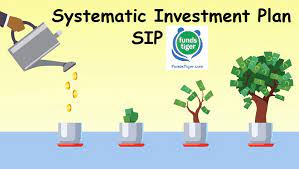Top 10 Fintech Products
By @Madhurima Tiwari
Market Insights
2020 was the year when global auto sales declined by 20% Millennials want to do everything through their smartphones. They want things to be as comfortable as possible. Banking is no exception. Their tech-first approach has been a real boost to the fintech industry, which is flourishing during the past few years.
This brought some new company, or competition, to the banks in the financial sector—the fintech startups. Fintech startups lead the way to the digital transformation of financial services, making transactions only one click away.
Each year, the fintech industry is rising, and the market is getting a lot of new fintech entrepreneurs seeking to meet the demands of clients and mold the finance's future. In fact, during the last year, fintechs gained $135.7 billion in investments worldwide.
Chime
Chime is a California-based digital bank that provides checking accounts without any fees, allowing the options for automatic savings and early payday through direct deposit. This bank with no physical location offers a debit card, fee-free overdraft security of up to $100, and access to paychecks up to two days in advance.
Founded in 2013, Chime has made it to three Forbes lists—World's Best Banks 2020, Best Startup Employers 2020, and Fintech 50 2020. According to Crunchbase, the company has raised a total funding amount of $1.5 billion, making it one of today’s hottest fintech startups. As it’s considered as one of the US’s fastest-growing banks, we expect Chime to be one of the top fintech products for 2021.
Brex
Another startup based in California, Brex, creates credit cards specialized for companies from the tech, e-commerce, and life sciences. Last year, the company introduced its second major product, a cash management account that can substitute a bank account called Brex Cash. Its customer list includes names like Carta, Airbnb, and Flexport. One of the most interesting facts about this startup is that co-founders Henrique Dubugras and Pedro Franceschi dropped out of Stanford to start it.
Braintree
Braintree, a subsidiary of PayPal, is a Chicago-based business specializing in e-commerce businesses via smartphone and web payment services. PayPal acquired it in September 2013. Braintree has a merchant account and a payment gateway for consumers, accepting various payment types, including Venmo. The company aims to help other companies that operate online to perform more secure transactions without the possibility of a data breach.
Verifi
For enterprises of all types spanning various markets, Verifi provides payment security technologies and risk management services. Its products help cardholders, issuers, and retailers to view real-time information that provides real-time resolution. Verifi also allows enterprises to avoid chargebacks, safely accept purchases, combat fraud, and raise billings.
Suplari
With clients like Hulu, Nordstrom, Wayfair, and CDK Global, Suplari is one of today’s top fintech products. The startup leverages AI and machine learning to help companies improve their cost management. Their platform provides information such as spending trends, completion of savings goals, and opportunities where funds could be spent more efficiently. According to Crunchbase, the company has raised a $13.4 million funding amount from investors like Workday Ventures, Amplify Partners, and Two Sigma Ventures.
Venmo
Another mobile payment owned by PayPal, Venmo, started as a simple SMS platform that allowed users to send and receive money. However, the product has evolved into a social payment app that allows users to buy, connect, and share their experiences. Users can now use the Venmo app to quickly send money to their friends without requiring any credit cards, wallets, or fees. They only need to link it to their debit card. Venmo makes splitting the dinner bill among friends more comfortable than ever. Users can also use the service in Uber, Forever 21, Urban Outfitters, Lululemon, etc.
Coinbase
To put it simply, Coinbase is an online marketplace for cryptocurrencies. Here, users can buy, sell, and securely manage their cryptocurrencies. Coinbase serves 32 countries and has traded different digital currencies, including Bitcoin, Bitcoin Cash, Ethereum, and Litecoin, valued over $150 billion.
Wealthfront
Wealthfront is an investment robo advisor that helps users manage their assets to meet their short-term and long-term goals. The platform provides a Cash Account with checking features and an interest rate that’s 5x higher than the national average. Clients can automatically deposit their paycheck into their account, while Wealthfront takes care of all bill payments and investments crafted according to their lifestyle. During 2020, the company has grown nearly 100%, reaching $20 billion in total client assets.
Circle
Circle is one of the top fintech products that offer peer-to-peer payments, supported by Goldman Sachs, Jim Breyer (Facebook), and Accel. It helps organizations of all types to leverage the strength of stable coins and shared blockchains for worldwide payments and trading. The transactions are supported by the fastest-growing fiat-currency backed stablecoin USD Coin (USDC), with a $500 million market cap. So far, Circle has raised a total investment amount of $271 million, according to Crunchbase.
Madhurima Tiwari
MBA finance
FinTech Manager

.jpg)


